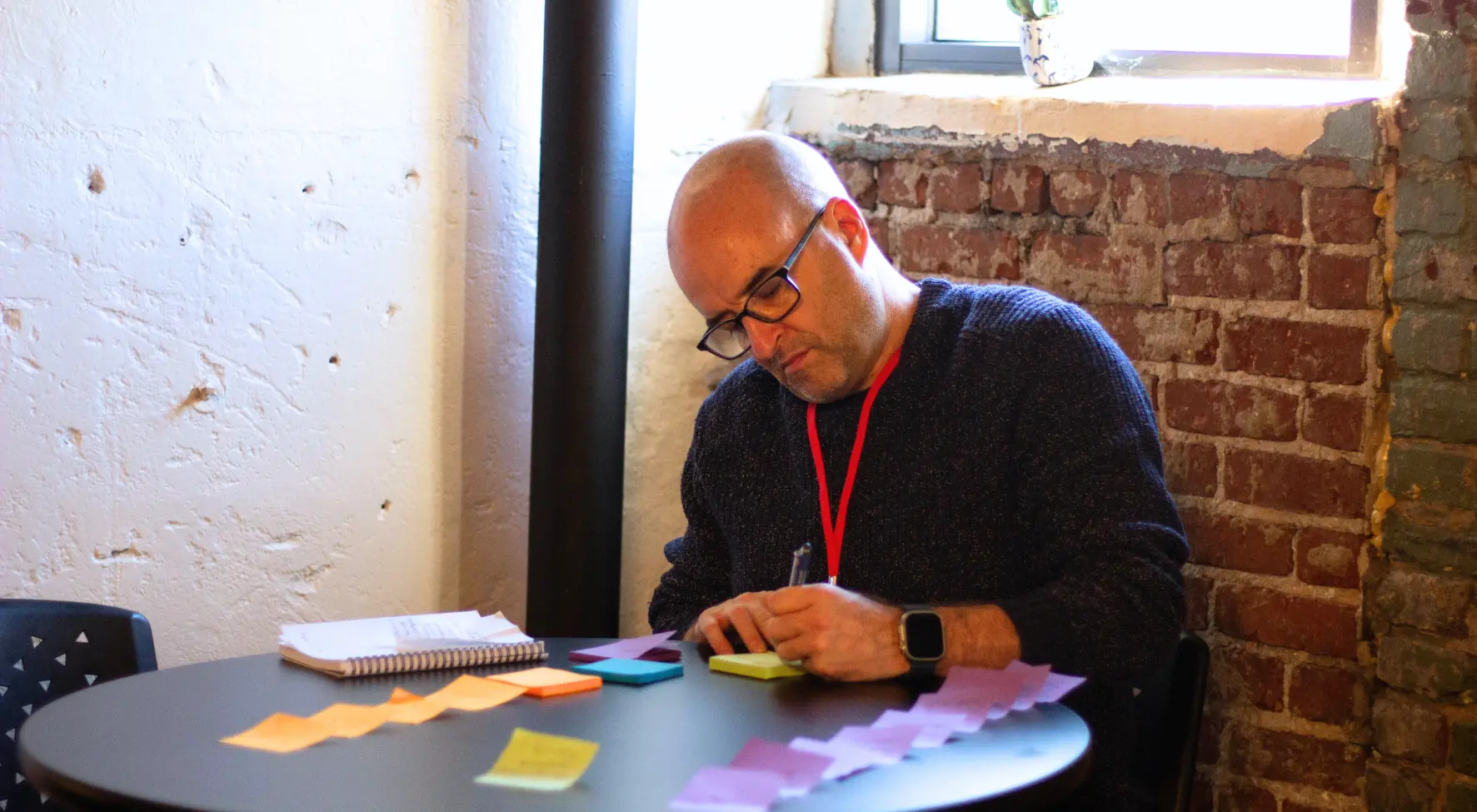More than a few aspiring speakers who come to train at HEROIC have told me: “I want to be like Tony Robbins.” Perhaps after witnessing one of his moving, motivational, high-energy performances, they imagine themselves having that same type of influence on their audiences.
But it’s highly unlikely you’ll “be like” Tony Robbins. At 6 feet 7 inches tall, with a booming voice and size 16 shoes, he’s quite literally one-in-a-billion. He’s unique.
And you are too. But in order to become the unique, fully expressed speaker that only you can be, you must move from mimicry to mastery, and have the courage to make big choices that are uniquely yours.
The First Stage of Learning: Copying
When you’re starting out in any learning process, it’s normal to make choices based on what other people do. When you start learning a new skill, you copy the way someone with experience does it. On a sports team, you’ll mimic the way experienced teammates move. In cooking or baking, you’ll watch videos from accomplished chefs and attempt to emulate them, step by step. The same happens in the speaking industry.
But let me be clear: I’m not talking about “copying” someone’s intellectual property. Stealing ideas, stories, or frameworks from another speaker is illegal and unethical. The copying I’m referring to here is imitating ways of being, styles, and choices. Things like staging, movement, use of props and visuals, approach to humor, and speech structure.
This type of copying can help you learn basic techniques that form the foundation of your skills. Of course, for this to be effective, you’ll want to make sure you’re copying the right people. Mimicking someone who’s simply doing what everyone else is doing (or worse, making choices that simply don’t work) neither benefits your audience nor helps you uplevel your performance.
Don’t Copy What’s Not Working
In 2003, when I started out in the speaking industry, I kept a log book to record consistencies. I watched as many speakers as I possibly could, and documented what was typical among speakers. Then, I analyzed; I considered: Is what they’re doing effective? If so, why? If not, why are they doing it?
I realized a lot of speakers did a lot of the same things. The same ineffective things. They copied each other, but they unknowingly copied what wasn’t working.
For example, many speakers would say something like, “well, let’s get started,” after three to four minutes of onstage fluff and filler. Their “warm opening” lacked structure, consistency, and craft. They had already started their speech, but without a solid opening; they were already off on the wrong foot.
I also saw hundreds of examples of speakers opening with, “I’m happy to be here.” What's the alternative? “I’m unhappy that I’m here but I’m getting paid a lot of money so I’ll do it anyway.” Don’t say it; show them how happy you are to be there through the quality of your work and your commitment to their needs.
Looking to the “status quo” for guidance and mimicking something just because it’s what everyone else is doing will often backfire. Learning by copying only works when you’re emulating people who’ve mastered their craft.


.webp)




.svg)










.webp)
.webp)

